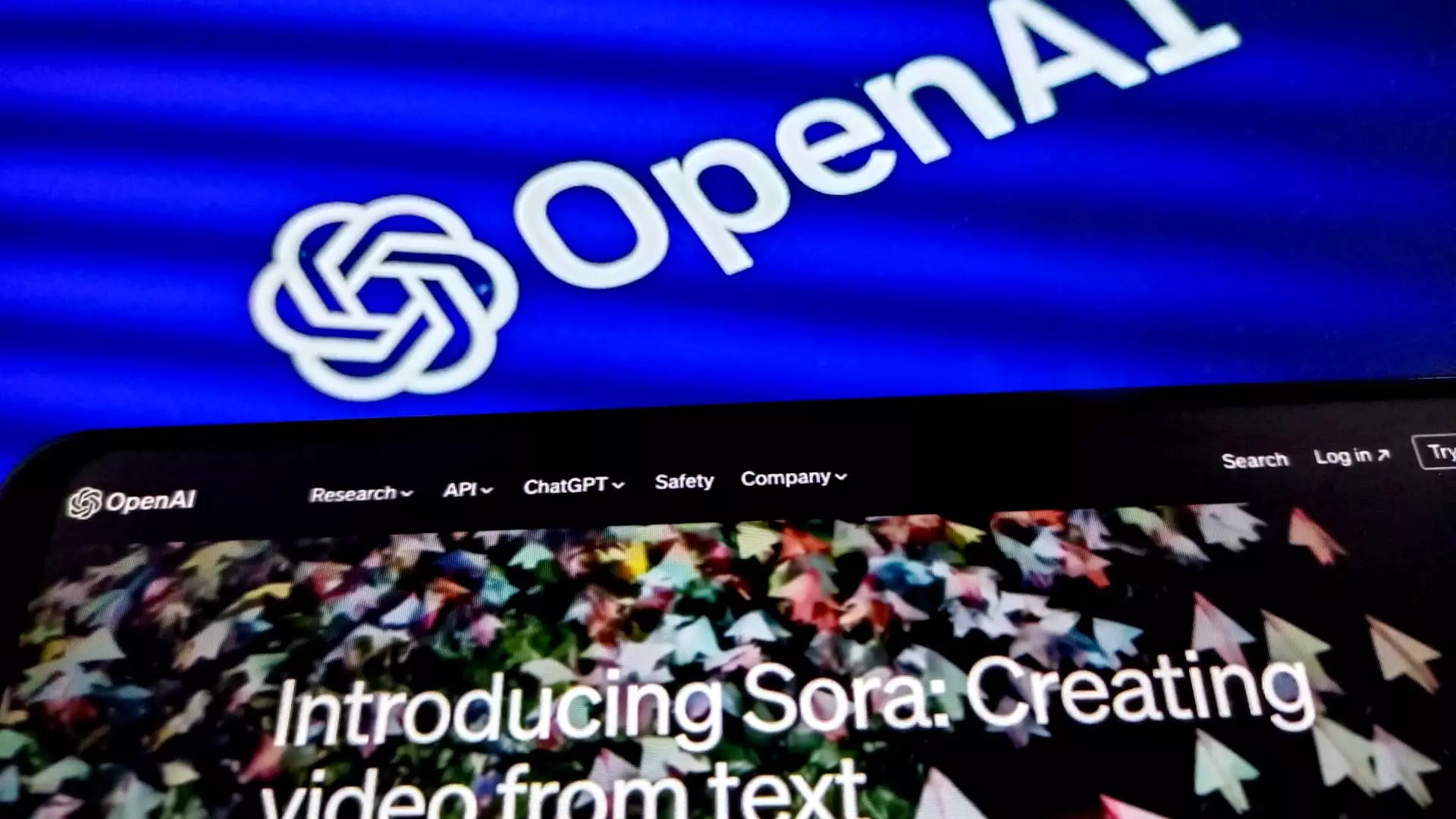OpenAI, the prominent artificial intelligence startup backed by tech giants like Microsoft and Apple, is navigating turbulent waters in light of recent executive departures. Notably, Chief Technology Officer Mira Murati announced her exit, along with the departures of key research figures Bob McGrew and Barret Zoph. These changes have sowed seeds of concern among investors, prompting the company’s CFO, Sarah Friar, to reach out reassuringly to stakeholders in an effort to bolster confidence in the company’s future.
The departure of high-profile leadership can be daunting for any company, especially one as high-profile as OpenAI. Murati’s exit marks the culmination of her six-and-a-half-year journey with the organization, a period in which she played an instrumental role in key projects. Past experiences, like her brief tenure as interim CEO, underscore the significant contributions she’s made and the challenges she faced during tumultuous transitions in leadership. However, the ability to adapt and rebound following such changes often defines a company’s long-term success.
While external observers may perceive these departures as indicative of instability, Friar’s correspondence emphasizes the company’s commitment to maintaining operational momentum. She noted that OpenAI possesses a “talented leadership bench,” framing the narrative of change not as a setback but as an opportunity to showcase resilience. Such a perspective can instill confidence among investors who are wary of disruptions at the leadership level.
In a critical moment for OpenAI, Friar reassured investors about an impending funding round projected to raise $6.5 billion, solidifying the company’s impressive valuation of around $150 billion. The financial backing is pivotal for OpenAI, enabling it to continue pushing the envelope of AI innovation while developing sustainable revenue models. The inclusion of Thrive Capital, with plans to invest $1 billion, sends a positive signal regarding the company’s viability in the competitive landscape of AI technology.
Moreover, Friar’s proactive approach in organizing calls with investors highlights a commitment to transparency, ensuring that key stakeholders remain informed about leadership changes and innovations. By presenting a united front and showcasing the capabilities of the organization’s remaining leadership, OpenAI aims to foster trust and stimulate investor enthusiasm.
OpenAI’s strategy to navigate this transitional phase includes a focus on internal talent. Mark Chen stepping into the role of senior vice president of research alongside other seasoned leaders demonstrates a commitment to continuity and innovation. The transition of responsibilities among existing team members can facilitate a seamless integration of new ideas without significantly disrupting ongoing projects.
The infusion of new leadership, especially from talents like Kevin Weil and Srinivas Narayanan, indicates a strategic pivot toward retaining operational excellence while nurturing the creativity and innovation necessary for AI advancements. This focus not only diversifies the leadership portfolio but embodies the ethos of a forward-thinking organization that is determined to thrive despite challenges.
An interesting subplot in OpenAI’s narrative revolves around co-founder Sam Altman and his equity stake in the company. At a recent all-hands meeting, Altman refuted allegations about plans for a significant equity stake allocation, which had drawn investor scrutiny. This dynamic underscores the delicate balance leadership must maintain between fostering company loyalty and addressing stakeholder concerns. With Altman co-founding OpenAI nearly a decade ago, his relationship with investors hinges on transparency and mutual interests.
Both Altman and Friar’s approach to engagement with stakeholders is vital in affirming that there are no underlying issues regarding leadership equity and incentive alignment. Maintaining trust during times of upheaval will serve as a crucial component in navigating this transition.
While the loss of key executives at OpenAI may initially appear as a setback, the company is underlining opportunities for growth through effective communication and strategic talent management. With significant funding on the horizon and a commitment to innovation, OpenAI appears poised to continue its trajectory toward groundbreaking advances in artificial intelligence. The leadership’s proactive responses and the strategic alignment with investor interests will be essential as the company marches into its next chapter.

